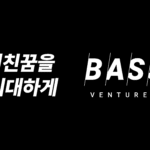
Since late last year, fierce competition has been boiling among companies in the small-sum overseas remittance market. Though it used to be the case that overseas remittances were monopolized by banks, the Korean government opened its doors to general companies in July last year, which has inaugurated fierce competition. Consequently, any companies that meet certain criteria, including a net worth of over KRW 2 billion (USD 1.85 million), computer facilities, foreign exchange experts, FX networks, etc. are now able to offer overseas remittance services after acquiring a small-sum overseas remittance license.
MOIN is a fintech startup that responded to the trend and subsequently announced its penetration into the overseas money transfer market. The company obtained the overseas remittance license and resumed its suspended service on February 1, 2018. The company’s CEO, Seo Il-seok, founded MOIN in March 2016 after holding several positions, such as senior researcher in Samsung Electronics, credit officer in SoftBank Ventures Korea, and CIO of FuturePlay.

■ Establish a remittance system that does not need an intermediary bank with blockchain technology
– I’ve heard that your experience as an international student overseas had a certain amount of influence on your decision to start the company.
When I did my Master’s degree a decade ago, I received and sent some money overseas. The process required a lot of time and money and I, as a recipient, had no clue when to access the money. Once, my parents made a mistake by writing an inaccurate recipient bank code and I had to undergo some difficulties with the subsequent delay in the money transfer. To my surprise, it’s been 10 years but there has been almost no change in the system. How could it be possible for a financial service that deals with highly important, sensitive goods – money – to be operated in such an inefficient, unreasonable manner? As an IT person, I could not understand why and that motivated me to plunge into this business.
– How cheap and how fast is it?
Compared to your ordinary banking service, it is a minimum of 50% and a maximum of 80% cheaper. If you send a small amount of money–around KRW 400,000 to KRW 600,000 to Japan or China–the charges are less than KRW 10,000. If the amount is more than that you will be charged around 1.5 to 2% of your remittance for fees. As for duration, it may differ from country to country, however, it normally takes anywhere between 2 hours and 2 days for a successful delivery.
– What makes it possible?
Previously, overseas fund transfers were only allowed if they got through the SWIFT network, a cooperative communication society for international financial banks. The process gives rise to wire transfer charges and various fees as it goes through domestic, overseas, and intermediary banks. The SWIFT network also slows down the transfer speed. We do not rely on intermediary banks to transfer money overseas–we use blockchain technology. That refers to the method of sending money by converting Korean currency into cryptocurrency to an overseas exchange center and then converting them again into local currency.
– Is it possible to ensure reliable money transfers with all the massive price fluctuations associated with cryptocurrencies?
During times of volatile fluctuations, we might use foreign currencies we have, engage in cash transactions, or send multiple cases in a single transfer instead of using cryptocurrencies. We do not rely solely on cryptocurrency for transactions. We calculate the fastest, cheapest, and best method for each transaction to apply to remittance services. Companies may have different designs and choices of remittance mechanisms that suit their needs. It can be said that one of the most important capabilities in the business is to optimize and systemize this remittance algorithm and our greatest strength lies in the process of advancing this algorithm.
– Who is your major target customer?
International students and foreign workers. We especially target China, which has overwhelming transaction volumes in the field of individual money transfers. As of last year, China’s remittance volumes surpassed that of the U.S. and topped the list. When overseas money transfers were only allowed in the banking system, it often resulted in unlawful deals. Some money exchange counters in Daerim-dong and its neighboring areas even offered a remittance service due to overly inflated bank commissions. As such, our goal is to grow the market by legalizing these illegal markets outside the boundary of law.

■ For first generation of Korea’s global remittance companies, the greatest challenge is to break up people’s fixed idea of ‘banks as the only safe financial institution.’
-It was hard to find any companies specializing in overseas remittance services. It seems that you have a lot of unchartered territory to explore in many ways.
Seeing as it is a new market, opened with the amendment of the Foreign Exchange Transactions Act in July of last year, it is still immature. In the case of the U.S., there is already a global money transfer operator (hereinafter MTO), Western Union, which has 150 years of history. If we call them the first generation of MTOs, the online-based second generation of MTOs started to emerge around the early 2000’s. Mobile, blockchain-based businesses such as MOIN fall into the category of the third generation. Compared to other countries, it is a nascent business in Korea. There is no particular difficulty in being the forerunner at the absence of benchmarking cases or role models. However, as the law has just been revised, the remittance limits are not the same with banks. This is where I wish to see some improvement.
– What is the greatest challenge for you?
Though banks are also private businesses in a sense, the confidence the Korean people have in the banking system is unbelievable. It is not the same overseas. In the end, the most daunting challenge we face is to knock down the fixed idea that it is not safe to send money overseas through businesses rather than through banks. I gather it will be important for us to have other good players in the market to improve this widely held perception.
– Internet banks such as KaKao Bank launched overseas remittance services with cheaper charges. What is MOIN’s competitiveness?
Though they propose lower fees than existing banks, internet banks including Kakao Bank are, in the end, still banks. Banks are certainly restricted in their ability to lower their commissions and fees. Kakao Bank does not diverge significantly from the existing banks in terms of overseas money transfer methods. They use the SWIFT network offered by Citi Bank. That means, they would have to pay for exchange commissions and overseas receiving fees. If you use MOIN, you are not charged for any extra charges other than the 1.5% fees. And some banks, for example, the Japanese post office bank, do not allow individuals to transfer money to other banks as they do not use the SWIFT network.
For banks, overseas remittance is not their major source of income, but rather an additional service. I think their engagement with this particular sector of business will be somewhat different from those specializing in money transfer only. I do not regard banks as competitors but as co-op partners. At present, they rely on the SWIFT network, nevertheless, they could provide their customers with enhanced services by using a MOIN network.
■ The goal is to occupy 5% of the overseas money transfer market in Korea
– Are you planning to be solely devoted to overseas remittance service? Is there any other service you would like to expand?
I expect it would take several years to establish our business in the overseas remittance market. After solidifying our base, we plan to expand our business to payment services. The most troubling area for unicorn companies in terms of domestic and overseas commerce is a money transfer and payment field. Against the backdrop of an increasing number of people who purchase foreign goods directly, I predict that a business that could offer a solution to the problem will relish the enormous rise in value. We are internally planning some blockchain-based projects. The gist of these projects lies in placing the remittance records on the blockchains so as to avoid counterfeit or forgery.
-Any plans to penetrate into overseas markets?
In Europe, the UK is the hub of the overseas money transfer business. Prior to the advent of Brexit, around 80% to 90% of the European foreign exchange dealings took place in the London market. For that reason, MTOs originating in the UK occupy the entire region in the EU. On the other hand, the size of the Asian individual remittance market is around KRW 500 to 650 trillion with no leading player. While there are several big companies in Japan and a large market, they have a lot to improve in terms of service. At present, while we mainly target Japan and China, we will expand our business to Vietnam, India, Indonesia, Singapore, Hong Kong, Thailand, and other countries.
– Lastly, tell us about MOIN’s short-term, mid-term & long-term goals.
Basically, MOIN was founded to provide consumers with a solution to the difficulties they face in their financial activities. One of the problems identified is that of overseas remittance. In the short term, our objective is to occupy 5% of this market. In the long term, we would like to be an Asian version of PayPal. Initially, PayPal began as a money transfer service provider and now they are established as a global payment network. We are fully committed to make our own remittance and payment service that fits Asian cultures and economic situations.
(Top photo fromMOIN)
This article, entitled “MOIN facilitates overseas money transfers with blockchain technology to bypass intermediary banks”, was written in Korean by Platum, translated by Flitto(global translation platform), edited by AllTechAsia.






댓글 남기기